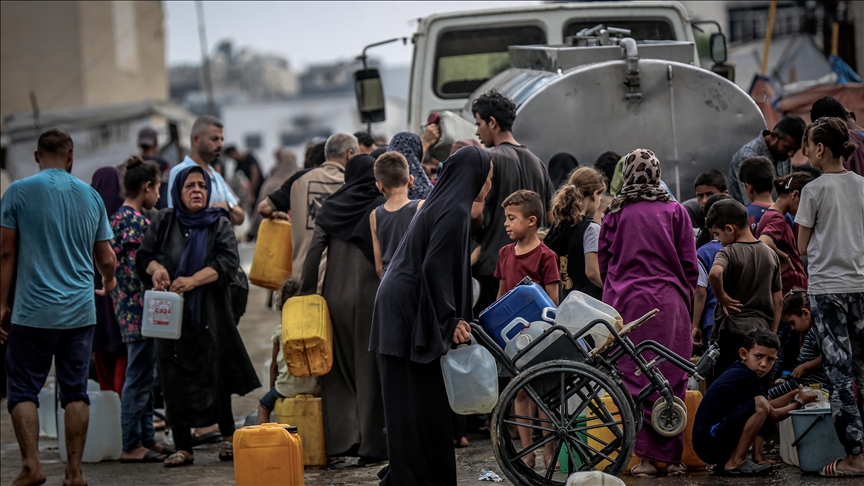UN refugee agency warns Gaza residents face death from thirst amid water system collapse
UNRWA says only 40% of Gaza’s water facilities remain operational as Israeli bombardment and fuel blockade push enclave toward man-made drought
 Daily life in Gaza under Israeli attacks
Daily life in Gaza under Israeli attacks
GAZA CITY, Palestine / ISTANBUL
The UN agency for Palestinian refugees (UNRWA) warned Wednesday that the Gazans face a severe water crisis threatening them with death from thirst, as Israeli strikes and fuel restrictions have crippled the enclave’s water infrastructure.
In a statement posted on Facebook, UNRWA said families across Gaza are “on the brink of dying from thirst” as water systems collapse due to ongoing Israeli attacks and a fuel blockade that has been in place since March.
“Only 40% of drinking water production facilities are still operating,” the agency said. “Gaza is on the edge of a man-made drought.”
The organization added that its ability to supply water has dropped to half the volume provided during the last ceasefire that was abandoned by Israel in mid-March. It attributed the decline to continued Israeli bombardment, forced displacement orders, and the Israeli authorities’ ban on fuel deliveries, which has lasted more than 100 days.
“Extracting water from well stopped due to fuel shortages, others located in dangerous areas that are difficult to access, pipelines are broken and leaking, and water tankers that often do not arrive,” UNRWA said, and called for an immediate ceasefire in Gaza.
Last month, municipalities across the enclave warned they were unable to maintain basic services, including operating water wells, because of fuel shortages.
According to the Gaza government media office, Israeli forces have destroyed or rendered inoperable 719 water wells since October 2023, triggering an acute water crisis.
Pedro Arrojo-Agudo, the UN special rapporteur on the human rights to safe drinking water and sanitation, said last month that Israel’s destruction of Gaza’s water infrastructure and denial of access to clean water amounts to a “silent yet deadly bomb.”
Gaza has faced a worsening humanitarian disaster since Israel closed border crossings on March 2, blocking the entry of food, medicine, humanitarian aid, and fuel, while intensifying its genocide across the besieged enclave.
Rejecting international calls for a ceasefire, the Israeli army has pursued a brutal offensive against Gaza since October 2023, killing more than 56,000 Palestinians, most of them women and children.








